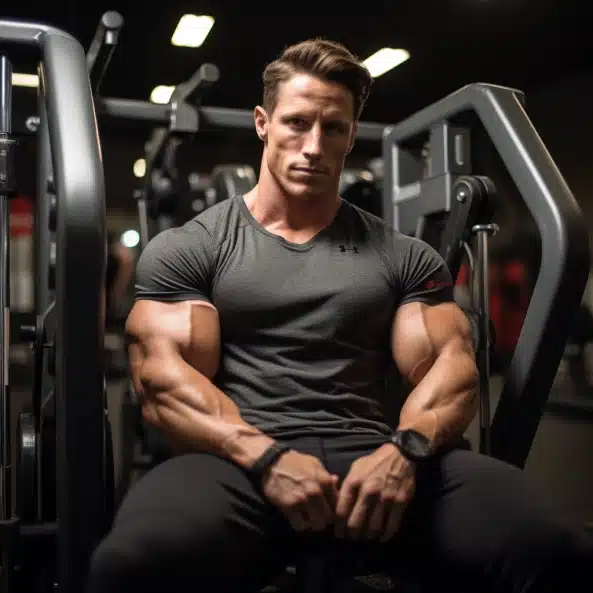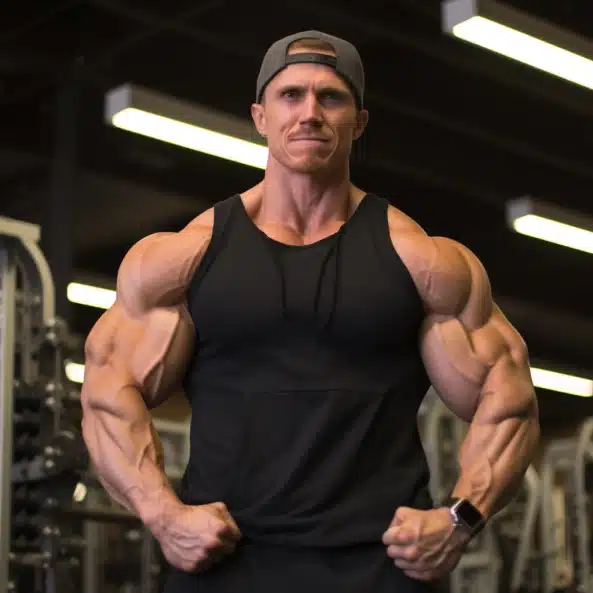Ketogenic Bodybuilding Diet: Following a ketogenic diet while bodybuilding may seem challenging, but it is possible to achieve your fitness goals with this approach. One of the main principles of a ketogenic diet is drastically reducing carbohydrate intake to induce a state of ketosis, where the body uses fat for fuel instead of carbs.
While carbohydrates are traditionally seen as necessary for muscle growth, there is evidence to suggest that a ketogenic diet can still support anabolic processes and muscle synthesis. By focusing on consuming enough fat, getting an adequate amount of protein, managing electrolyte levels, and being mindful of hidden carbs, bodybuilders can successfully follow a ketogenic diet while building muscle and achieving their bodybuilding goals.

Key Takeaways:
- A bodybuilding keto diet involves reducing carbohydrate intake to induce ketosis and use fat for fuel.
- While carbohydrates are traditionally important for muscle growth, a ketogenic diet can still support anabolic processes.
- Consuming enough fat, getting adequate protein, managing electrolyte levels, and avoiding hidden carbs are crucial for success on a ketogenic diet.
- Following a bodybuilding keto diet can help individuals reach their fitness goals and achieve desired bodybuilding results.
- Consulting with a healthcare professional or nutritionist is recommended before starting a bodybuilding keto diet.

The Anabolic Potential of a Ketogenic Diet
Muscle development and protein synthesis require insulin and carbs. After eating carbs, the pancreas produces insulin to build muscle and absorb amino acids. Leucine drives carb-free protein synthesis. Carbs aid recovery and muscle repair without increasing protein synthesis. Insulin enhances anabolism by altering creatine transport, electrolyte accumulation, and cell volume. The ketogenic diet enhances anabolism in numerous ways, counter to the belief that carbs build muscle.
Bodybuilders were hesitant, but research showed that a well-designed ketogenic diet with low carbs and high fat can promote muscle growth. Fat-based ketosis increases protein synthesis, decreases muscle breakdown, and promotes muscle development and repair nutrition.
Ketogenic Diet
From fatty acids, ketosis produces ketone bodies for the brain and muscles. Despite carb limitation, this fuels ketogenic diet bodybuilders. Though insulin secretion requires carbs, a ketogenic diet can improve anabolic activity.
Research reveals a ketogenic diet increases muscle protein synthesis without carbs. Protein synthesis is boosted by leucine. Protein and leucine-rich diets assist low-carb bodybuilders repair and grow muscle.
A well-formulated ketogenic diet can stimulate anabolism through several pathways, but carbohydrates and insulin are still essential for muscle building. Ketosis helps bodybuilders gain muscle by controlling energy, protein synthesis, and caloric intake.
Avoiding Common Mistakes and Optimizing Peak Week
During peak week, proper nutrition is key for bodybuilders preparing for a competition. It requires understanding the right balance between carbohydrates, protein, and fats to ensure optimal performance and achieve the desired physique. Let me guide you through some important considerations to avoid common mistakes and make the most out of this critical phase.
Carbohydrate Loading and Protein Intake
Carb loading needs moderation. Despite its attractiveness, carbohydrate excess can harm your health and performance. Instead, fuel your workouts and recovery with carbs.
Keto bodybuilders risk gluconeogenesis, which impairs ketosis. Muscle growth requires protein. Assess your tolerance and avoid overeating, which can transform into glucose, to maximize protein intake.
Maintaining Electrolyte Balance and Avoiding Hidden Carbs
Don’t overlook the importance of electrolytes during peak week. These minerals play a vital role in maintaining hydration and preventing symptoms of the dreaded “keto flu.” Make sure you’re replenishing your electrolyte levels by incorporating foods rich in potassium, magnesium, and sodium into your diet.
Furthermore, be mindful of hidden carbs in processed foods. These sneaky carbs can quickly add up and potentially throw you off track. Always read food labels carefully and stay within your desired macronutrient range to ensure you’re on target with your nutrition goals.

Embrace Trial and Error
Peak week is not a one-size-fits-all approach. Each bodybuilder responds differently, and what works for one person may not work for another. Embrace the concept of trial and error, and be open to adjusting your nutrition and approach as needed. Keep track of your progress, take note of what works best for you, and fine-tune your strategy accordingly.
By staying mindful of peak week nutrition, avoiding common mistakes, and being open to adjustments, you can optimize your results and step on stage with confidence.
FAQ
Can I build muscle while following a ketogenic diet?
Yes, it is possible to build muscle while on a ketogenic diet. While carbohydrates have traditionally been seen as necessary for muscle growth, there is evidence to suggest that a ketogenic diet can still support anabolic processes and muscle synthesis. By focusing on consuming enough fat, getting an adequate amount of protein, managing electrolyte levels, and being mindful of hidden carbs, bodybuilders can successfully follow a ketogenic diet while building muscle and achieving their bodybuilding goals.
Do carbohydrates play a crucial role in muscle growth and protein synthesis?
Carbohydrates and insulin do play important roles in muscle growth and protein synthesis. Insulin is a hormone secreted by the pancreas in response to carbohydrates and serves various functions, including driving amino acid uptake and facilitating muscle growth. However, it is possible for protein synthesis to occur in the absence of carbohydrates, with leucine being the primary driver of this process. While carbohydrates are not required to stimulate the protein synthesis switch, they do contribute to overall anabolism by reducing muscle breakdown and enhancing recovery.
What should I consider in terms of nutrition during peak week?
Peak week nutrition is crucial for bodybuilders preparing for a competition. It is important to understand the balance between carbohydrates, protein, and fats during this phase. Carbohydrate loading should be done moderately, avoiding excessive carb intake that could lead to adverse effects. Consuming enough fat is essential in a ketogenic diet to ensure proper energy levels. Protein intake should be optimized, considering individual tolerance and the risk of gluconeogenesis, which converts excess protein into glucose and can hinder ketosis. Electrolytes play a vital role in maintaining hydration and preventing symptoms of the “keto flu.” Being mindful of hidden carbs in processed foods is crucial to staying within the desired macronutrient range. Additionally, trial and error is key to finding the most effective approach during peak week, as individual responses may vary.
Source Links
- https://www.bodybuilding.com/content/can-you-build-muscle-on-a-ketogenic-diet.html
- https://www.bodybuilding.com/content/the-5-biggest-keto-mistakes.html
- https://www.bodybuilding.com/content/layne-norton-peak-week-nutrition.html

